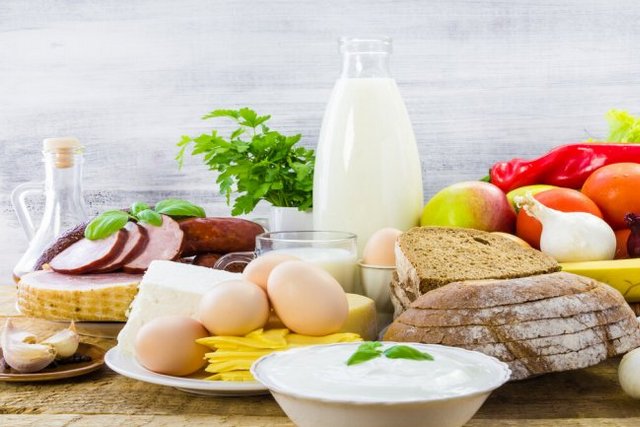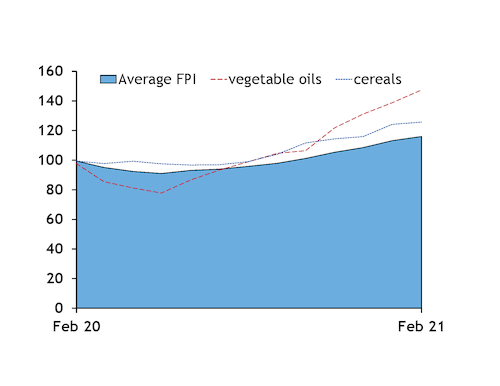Global food prices reach near seven-year highs

Global food prices soared to near seven-year highs in February, as strong demand for cereals and vegetable oil products continued to outpace thin supply from a weak global harvest.
The UN’s Food Agriculture Organisation’s (FAO) latest food price index averaged 116 points in February. This was the highest since July 2014, and marked a ninth consecutive month-on-month rise.
The strongest price gains were recorded in the FAO’s vegetable oil price sub-index, which is at a record high of 147.4 points, and up by 8.6 points on the month. The previous record for the sub-index was in 2008 during the boom in global commodity prices, when it reached 142.2 points.
Tight palm oil inventories greatly contributed to the highs, amid concerns of shortages. Soybean prices were also pushed higher by the late arrival of new crops in South America while rapeseed and sunflower stocks fell from weaker output from Black Sea and EU producers.
Soybean oil purchase prices for Egyptian state-owned grains buyer GASC have risen by $96/t in the two weeks since mid-February, reaching $1,180/t cfr Egypt on its latest purchase tender, which was awarded today. GASC has suspended purchases for sunflower oil amid rising international prices for the product. Its last purchase was in October 2020.
Global cereals prices have also surged, with the FAO’s cereal price sub-index reaching 125.7 points in February. This is up by a further 1.5 points from January and amounts to the sub-index’s highest level since 2013.
Stronger Chinese demand greatly contributed to the rising prices, with China’s government actively trying to boost its strategic reserves this year amid growing demand from its animal feed sector.
The US Department of Agriculture expects Chinese corn imports to outpace the previous marketing year by 16.4mn t to reach 24mn t in 2020-21 (July-June).
Corn prices in Ukraine — one of China’s main suppliers — rose to highs of $267.50/t fob in early February amid rising Chinese demand. This was its highest price since Argus began assessing the contract on 11 December.

Read also
Wheat in Southern Brazil Impacted by Dry Weather and Frosts
Oilseed Industry. Leaders and Strategies in the Times of a Great Change
Black Sea & Danube Region: Oilseed and Vegoil Markets Within Ongoing Transfor...
Serbia. The drought will cause extremely high losses for farmers this year
2023/24 Safrinha Corn in Brazil 91% Harvested
Write to us
Our manager will contact you soon



